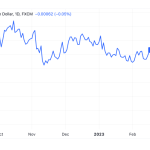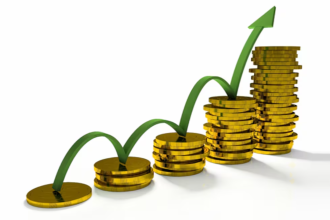The stock market can seem confusing and daunting to anyone who is not well-versed in finance or an experienced investor. For instance, everyone has heard of buying stock and of dividends, but what do these terms actually mean?
To invest in stock means buying into a company, as you will own a share of it. The price of company shares are determined by its overall value.
Stock dividends are rewards that those who own shares in limited companies receive on a quarterly basis. That is a brief description, but read on for a more detailed explanation.
What Stock Dividends are and how they Work
A stock dividend is a form of payment that those who own shares in a company are given. The board of directors for the company in question determines the amount of these dividends, but they must use the net annual turnover generated by the company as the basis for doing so.
When answering the question how do dividends work, however, it is important to note that these rewards are not usually provided in the form of monetary payments. Occasionally they may be, but more often the dividends are given to the shareholders as additional company shares.
Therefore stock dividends increase the stake that a shareholder has in the company. One purpose of them is to reward existing shareholders without depleting the reserves of cash held by the company, the way monetary payment dividends can.
However stock dividends also reduce the price of shares in the company, because they dilute the value of them by adding to the amount of existing stock. That may sound like a bad thing for those who own shares, but this is not necessarily the case.
The Benefits of Stock Dividends

Dividends issued as stock rather than as cash payments can benefit both the shareholders and the company.
One major advantage for shareholders is that they can attract further investors to the company. Because issuing stock dividends waters down the overall share price of a business, it becomes more appealing to investors.
That stands to increase the value of the stock for the existing shareholders down the line, bringing a more lucrative return on their investment. That is not the only advantage though.
Whereas cash dividend payments can be subject to tax, stock dividends are not liable for taxation until the shareholder sells them. Furthermore, issuing dividends in the form of stock rather than monetary payments means reserves of cash held by the company are not affected.
That keeps the firm on a more financially stable footing, which benefits both the company itself and anyone who owns shares in it.
Stock dividends are rewards that promise to pay off over the longer term rather than straight away.
How do They Differ from Other Kinds of Stocks?
Those choosing to invest in company stock are not guaranteed dividends as a result of their investment. Some companies provide cash or stock dividends for shareholders whilst others do not and that is something that should be researched before buying any stock.
Equally some provide dividends only for holders of preferred stock rather than common stock. The difference between these two types of stock is that preferred stock holders have fewer voting rights over the future of the company but are given precedence in terms of both dividends and a share of the company assets if it is liquidated.
Whether you choose to buy common or preferred stock in a company could therefore depend on whether having a say over its direction is the most important thing for you or whether you consider strict financial returns to be more crucial.
However investors also need to consider their own risk tolerance levels. For example, an investment in growth stock can bring strong financial returns very quickly, even without dividends, but can also leave your investment more vulnerable to growth slowdowns.
Value stocks are lower-risk investments in stable, firmly established companies. The returns are usually lower, but are less liable to fluctuate.
If an investment in this kind of stock includes either stock or cash dividends, it can be a very dependable and regular revenue stream for investors – even if the returns are not spectacular.
Dividends have clear advantages, which is why more firms now provide them. Sometimes those quarterly dividends are paid in stock and at other times they are cash payments. The latter is more immediately rewarding, but the former can pay off long term.















